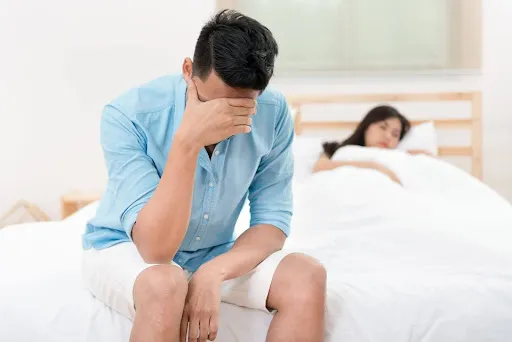HPV in married women often comes from past exposure or dormant infection, not betrayal. Screening, vaccines, and healthy habits reduce risks. Honest awareness keeps health and relationships steady. |
You’d think marriage protects against most sexually transmitted infections. But women sitting in a doctor’s office, looking at an HPV-positive test, often ask the same uneasy question: how does a married woman get HPV? The confusion comes from HPV’s ability to linger for years, showing up long after it was first acquired. HPV in married women is not rare, and it has little to do with betrayal. It has more to do with timing, biology, and how this virus behaves.
How Does a Married Woman Get HPV?
The virus spreads through skin-to-skin contact. It doesn’t always need obvious symptoms to pass from one person to another. That is why how a married woman gets HPV is best answered by looking at three main factors:
Previous exposure before marriage that stayed silent.
Transmission within marriage when a partner carries it unknowingly.
Dormant virus reactivates years later due to stress or a weaker immune system.
HPV in monogamous relationships can surface without anyone breaking trust. It is not like other infections where symptoms show up quickly. Instead, it hides, waits, and sometimes reappears.
Can a Married Woman Get HPV Without Cheating?
This is the question that stirs emotions most. The short answer: yes. Can a married woman get HPV without cheating? Absolutely. Many women carry the virus unknowingly for years. Marriage does not erase what happened before.
Here are scenarios doctors explain in plain words:
Dormant infection wakes up after decades. A woman who thought she was clear suddenly sees abnormal cells on a Pap test.
Her partner contracted HPV long ago. Men rarely get tested for HPV, so many never realize they have it.
Reactivation under stress. Illness, smoking, or lowered immunity lets HPV show its face again.
HPV transmission in marriage is misunderstood. Some women feel accused the moment their test comes back positive. But HPV in married women often points back to an older story, not a new one. Think of it less as a fresh infection, more as a resurfacing.
HPV Symptoms in Married Women
Most women will not feel or see anything. That’s the trickiest part. HPV symptoms in women are mostly silent until screening picks them up. But some signs do appear.
1. Genital Warts
Soft bumps or clusters in the genital area. They may itch, cause discomfort, or appear smooth and flat. Many times, they are missed or mistaken for skin irritation.
2. Cervical Cell Changes
No pain. No discharge. Just invisible shifts detected through Pap smears. These changes are where cancer risk begins if left unchecked.
3. Vaginal Discomfort
Occasional bleeding after sex, unexpected discharge, or dull pelvic pressure. These can overlap with other problems, but they’re worth checking.
4. Oral HPV
Less common, but possible. Sore throat that lingers, changes in the voice, or trouble swallowing may suggest oral infection.
HPV in Married Women – Visible vs. Hidden
Type of Effect | Visible Signs | What Stays Hidden |
Genital warts | Small growths, itching | Usually harmless but persistent |
Cervical changes | None visible | May lead to cervical cancer |
Vaginal discomfort | Bleeding, discharge, pain | Can overlap with other issues |
Oral HPV | Sore throat, hoarse voice | Risk of throat cancer in rare cases |
Silent infections outnumber visible ones. That is why screening is not optional; it’s essential.
Risks of HPV for Married Women
HPV in married women does not always turn dangerous, but when it does, the risks are clear. These risks explain why doctors never dismiss it lightly.
Cervical Cancer
HPV causes around 690,000 cancers worldwide each year. Cervical cancer is the one most closely tied to persistent HPV. Without detection, it grows slowly over decades.
Other Cancers
HPV in monogamous relationships can also lead to vulvar, vaginal, anal, or throat cancers. Not every infection turns that way, but the connection is undeniable.
Emotional Strain
A married woman's HPV cause is not just biological. It causes relationship stress, self-doubt, and unnecessary blame. The silence of the infection makes couples question loyalty, even when it’s misplaced.
HPV Prevention for Married Women
Prevention doesn’t mean fear. It means being practical. HPV prevention for women focuses on controlling risk, even inside marriage.
Steps worth following:
Routine Pap smears and HPV tests. These catch problems early, long before symptoms appear.
HPV vaccine for married women. Even in marriage, vaccination protects against high-risk strains. As of February 28, 2025, 148 out of 194 WHO member states (76%) use it in national programs.
Healthy lifestyle choices. Strong immunity keeps the virus quiet. Quitting smoking, eating well, and sleeping enough matter here.
Barrier protection. Condoms reduce risk, though not fully.
The vaccine and regular checks together offer a safety net. Prevention is not about distrust; it is about giving women control over their health.
Final Thoughts
The lingering question, How does a married woman get HPV, is answered by science, not suspicion. HPV in married women often comes from older infections, not from betrayal.
With screenings, vaccines, and knowledge, the risks shrink dramatically. HPV prevention for women today means fewer cancers tomorrow, and peace of mind in marriages that don’t deserve doubt.
أسئلة متكررة
Can HPV return after many years of silence?
Yes. HPV can remain hidden in the body for decades. Reactivation often happens when immunity weakens, which explains late diagnoses in long-term marriages.
Do condoms fully stop HPV transmission?
No. Condoms reduce the spread but don’t cover all exposed skin. HPV in monogamous relationships can still appear even with consistent condom use.
Can men be tested for HPV like women?
There is no standard HPV test for men. Most infections go unnoticed until a partner develops symptoms or shows abnormal Pap smear results.
Should married women still get the HPV vaccine?
Yes. The HPV vaccine for married women offers protection against high-risk strains even later in life. It reduces future risks, not just early ones.
Can lifestyle changes lower HPV risks?
Yes. Quitting smoking, eating nutrient-rich foods, and reducing stress all help the body fight HPV naturally. Stronger immunity often means faster viral clearance.
How does woman get hpv?
If a woman comes in contact with an infected person, then it gets transmitted through
What should I do if my wife has HPV?
Follow the safe sex practices with your wife. Maintain hygiene level and revisit the doctor to reduce any complications.
-User-1754380331.png)
كُتب بواسطة







